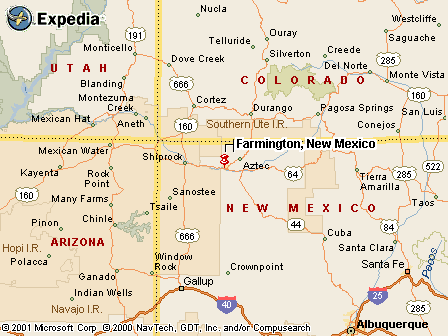|
|
Canku Ota |
|
|
(Many Paths) |
||
|
An Online Newsletter Celebrating Native America |
||
|
June 30, 2001 - Issue 39 |
||
|
|
||
|
Navajo Performer Writes, Sings About Racism |
||
|
by Brenda Norrell Indian Country Today Staff - June 20, 2001 |
||
|
Photo by Mary Pierpoint of Indian Country |
 FARMINGTON, N.M. - Navajo singer and songwriter Corey Allison grew up and went to school with the
same non-Navajos charged with the beatings and murders of Navajos in this bordertown. FARMINGTON, N.M. - Navajo singer and songwriter Corey Allison grew up and went to school with the
same non-Navajos charged with the beatings and murders of Navajos in this bordertown.One of his classmates from Spanish class released a shopping cart from a motorcycle traveling at a high rate of speed and killed a Navajo. Baseball bat-wielding white teen-agers attack Native teen-agers. A Navajo woman was bludgeoned to death with a sledgehammer by two men on the outskirts of town. Refusing to keep his experiences remain in silence, he penned lyrics aimed at eradicating hatred. "In 1996, ABC television called Farmington the most racist city in America," Allison said. Surrounded by Navajo, Apache and Ute tribal lands in the Four Corners region, Farmington, is where Navajos were tortured to death in the 1970s. The horrendous hate crimes are documented in the book "The Broken Circle," by Rodney Barker. The U.S. Civil Rights Commission investigated the city's police department following allegations of racism in the 1990s. When names of hate-crime perpetrators appear in the news, Allison said he remembers the faces at younger ages; remembers the names that match the arrest warrants. "It is the people I grew up with. In a way they were my friends because I used to play sports. They would say to me, 'You're OK, you're one of us.' But they were constantly using racial slurs." While racism was the biting undercurrent in the community, Allison's home was filled with song and dance. The 22-year-old says he grew up with all sorts of music and dancing, ranging from "The Sound of Music" to the Beastie Boys. "I learned to appreciate every form of music." Allison's father, Arthur Allison Sr., always told him, "Live your passion!" With this in mind, Allison sang in elementary school Christmas programs and went on to explore the sounds of the piano and violin. In school choir, he covered the full spectrum, singing soprano, tenor and bass. At Farmington High School, he was a member of the popular Hollering Band. Fascinated by numbers, he later attended the University of New Mexico and majored in economics. During college years, "I was twisted, turned, thrown upside down, broke, rebuilt, then washed again." Allison said. Missing the frequencies of sound, he began to play music again because "the radio was no longer making sense." He picked up a guitar and began composing music for himself. A year after performing a song written for his aunt's funeral, he began performing across the Southwest. Although he's been playing in places like Club Rhythm and Blues in Albuquerque, Billy Gordon's in Phoenix and Sprockets in Albuquerque, he said he's also touring the "open mike scene" of coffee houses. "The core of my music remains in the acoustic form." "People always ask me, 'What type of music do you play?' I usually say, 'I don't know, I have yet to develop a sound.' Most of my music has been written on the guitar. I can pretty well play any style, you know, I like De Lucia, Hendrix, the Doors, the Roots, drum and bass, jungle, Native beats and chants. I love all music! "I try to listen to as many types of music as I can. I want to push, evolve music, translate what I hear in my head, to audible sound, you know?" Allison's lyrics at the Native American Music Festival 2001 at Diné College in Tsaile, Ariz., showed clearly what is in his head. His thoughts are the memories of Navajos, beaten and murdered, by the young people he went to school with. "Racism breeding ignorance and ignorance breeding racism," Allison sang. Reflecting on his motive for singing about bordertown racism, he says, "People are always downgrading Native Americans. I have to release that energy." |
|
|
|
|
||
|
|
||
| Canku Ota is a free Newsletter celebrating Native America, its traditions and accomplishments . We do not provide subscriber or visitor names to anyone. Some articles presented in Canku Ota may contain copyright material. We have received appropriate permissions for republishing any articles. Material appearing here is distributed without profit or monetary gain to those who have expressed an interest. This is in accordance with Title 17 U.S.C. section 107. | ||
|
Canku Ota is a copyright © 2000, 2001 of Vicki Lockard and Paul Barry. |
||
|
|
|
|
|
The "Canku Ota - A Newsletter Celebrating Native America" web site and its design is the |
||
|
Copyright © 1999, 2000, 2001 of Paul C. Barry. |
||
|
All Rights Reserved. |

